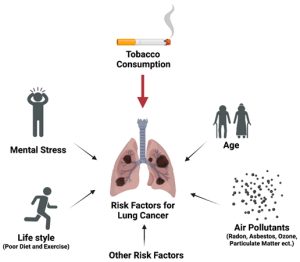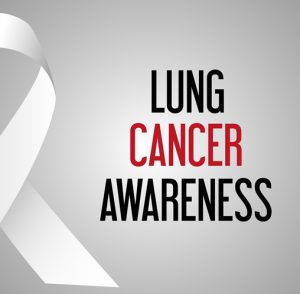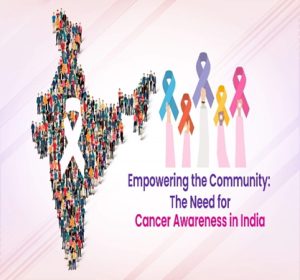Lung cancer remains one of the most prevalent and deadly forms of cancer worldwide. With its high mortality rate, early detection and awareness are crucial in combating this disease. Here, we delve into the importance of raising awareness about lung cancer.
Lung cancer remains one of the most prevalent and deadly forms of cancer worldwide. With its high mortality rate, early detection and awareness are crucial in combating this disease. Here, we delve into the importance of raising awareness about lung cancer.
In developed countries, lung cancer incidence and mortality rates are generally declining, again likely due to the reduced prevalence of tobacco use. In contrast, lung cancer incidence and mortality rates in developing countries are increasing, which is likely to continue, due to endemic use of tobacco products in these countries. This change is particularly obvious in Africa where lung cancer has been a rare disease even in recent decades due to limited tobacco exposure. The historical and epidemiological data provide compelling and unequivocal evidence that tobacco control should be promoted and implemented globally to improve the management of lung cancer and many other health conditions.
Understanding the Risks:
Lung cancer is primarily linked to smoking, but non-smokers can also develop the disease. Exposure to second-hand smoke, aging, mental stress, unhealthy lifestyle, environmental pollutants, radon gas, and genetic factors can increase the risk. By understanding these risk factors, individuals can make informed decisions about their lifestyle choices and seek preventive measures.

Early Detection Saves Lives:
Early detection significantly improves the chances of successful treatment and survival. However, lung cancer often goes undetected in its early stages due to a lack of noticeable symptoms. By raising awareness about common symptoms such as persistent cough, chest pain, hoarseness, and unexplained weight loss, individuals are more likely to seek medical attention promptly, leading to earlier diagnosis and better outcomes.

Breaking the Stigma:
Lung cancer is often stigmatized as a “smoker’s disease,” which can deter individuals from seeking help or discussing their symptoms openly. Raising awareness helps break down this stigma by emphasizing that anyone can develop lung cancer, regardless of smoking history. By fostering open dialogue and support for those affected by the disease, we can encourage early detection and improve outcomes.

Promoting Screening and Education:
Screening programs, such as low-dose computed tomography (LDCT) scans, are available for individuals at high risk, such as current or former smokers. However, many people may not be aware of these screening options. By promoting education about screening guidelines and the importance of regular check-ups, we can ensure that high-risk individuals undergo timely screening, leading to early detection and intervention.

Conclusion:
Lung cancer awareness plays a critical role in saving lives. By understanding the risks, promoting early detection, breaking the stigma, advocating for screening and education, and supporting research efforts, we can make significant strides in the fight against lung cancer. Together, let’s raise awareness and empower individuals to take control of their lung health.

